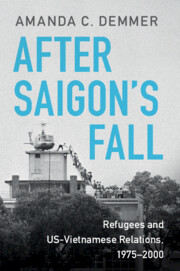Book contents
2 - Human Rights, Refugees, and Normalization
from Part I - 1975–1980
Published online by Cambridge University Press: 08 April 2021
Summary
During the late 1970s, US policymakers attempted to resume formal relations with China and Vietnam, respond to the Indochinese diaspora, and institutionalize human rights into US foreign policy. These efforts all became deeply enmeshed. Although attempts to normalize relations with Hanoi failed, they cast a long shadow. Thereafter, US policymakers demanded a withdrawal of Vietnamese troops from Cambodia and a “full accounting” of missing American servicemen were before Washington and Hanoi could resume official talks. These conditions tabled formal negotiations for nearly a decade.
Human rights and humanitarianism became increasingly entangled in this fluid environment. US policymakers described the Indochinese diaspora as both a human rights and humanitarian concern and implemented the Refugee Act of 1980, which codified a human rights definition of refugee with a humanitarian exception clause. The advocacy of the Citizens Commission on Indochinese Refugees (CCIR), select congressmen, and growing Holocaust awareness helped solidify these connections in American thought and law. Nonexecutive actors also created significant momentum for expanded admission opportunities for Indochinese refugees. Because the White House remained preoccupied with other issues, the information, pressure, and publicity the CCIR and its governmental allies garnered were instrumental to creating a broad base of support for refugee admissions.
Keywords
- Type
- Chapter
- Information
- After Saigon's FallRefugees and US-Vietnamese Relations, 1975–2000, pp. 59 - 94Publisher: Cambridge University PressPrint publication year: 2021

